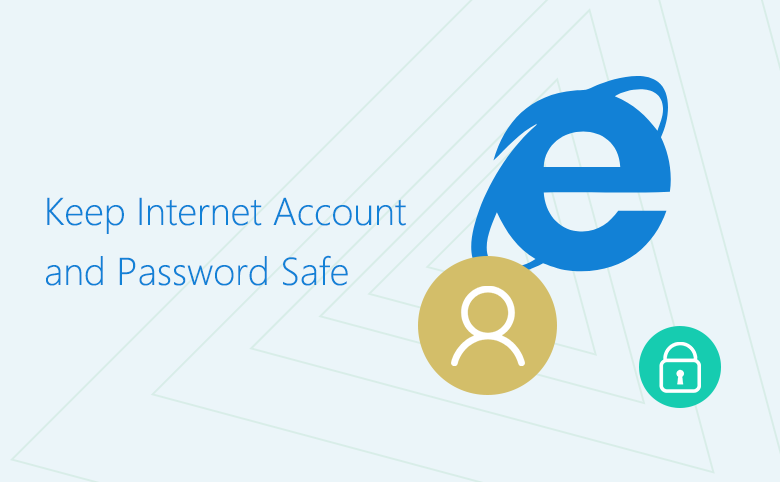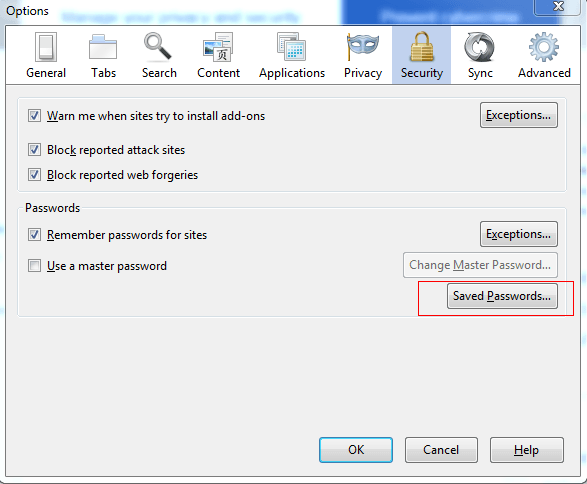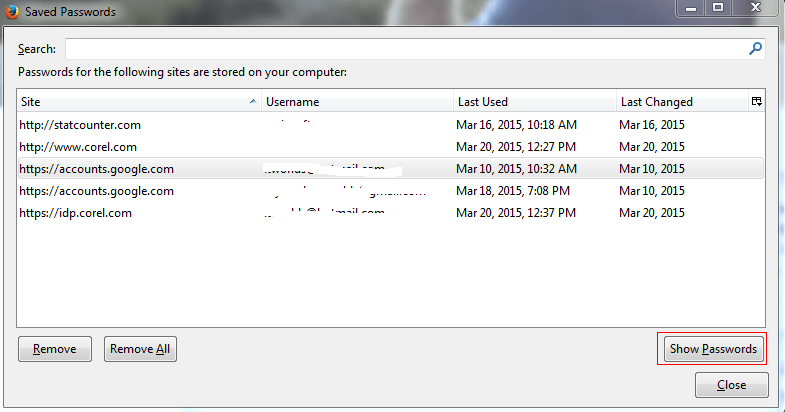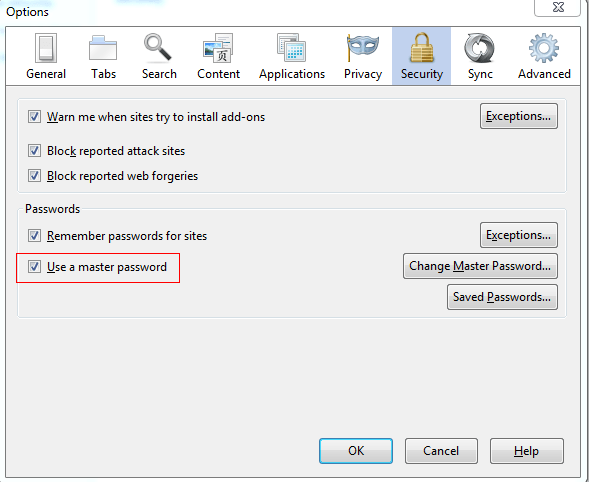How to Keep Internet Account and Password Safe

Nowadays, most of the people are using internet, but most of the internet users have not been aware of the importance of security, including me, until my Facebook account was stolen.
In fact, the user accounts and passwords you saved on the browser, are not safe. Believe it or not, here I will take Firefox and Chrome for example to show you why the accounts and passwords saved on browser are not safe and how to keep them safe.
- Guide Steps
- Part 1: Why the accounts and passwords saved on the browser are not safe?
- Part 2: How to keep your accounts and passwords safe on the internet?
Part 1: Why the accounts and passwords saved on the browser are not safe?
Your accounts and passwords are easily to be stolen, even without any technique and tools on browser.
1. Take Firefox for example:
Step 1:Open the Firefox menu ![]() on the toolbar-Options-Security.
on the toolbar-Options-Security.
Step 2: Click on the Save Passwords button.

Step 3: Click on the Show Passwords button, and then you can see all of the passwords.

2. Take Chrome for example:
Step 1: Open the Chrome menu ![]() on the browser toolbar-Settings.
on the browser toolbar-Settings.
Step 2: Click Show advanced settings.
Step 3: Check the "Offer to save your web password" checkbox.
If you can"t find the "Show advanced settings" button, you can also type in the address: chrome://chrome/settings/passwords.
And then click on Show button.
Now, have you realized the accounts and passwords created on the internet are not safe?
Part 2: How to keep your accounts and passwords safe on the internet?
1. Set a master password on the browser
On the Firefox Security option, check the "Use a master password" checkbox, enter new password, re-enter password, to set a master password.

If others want to check for your accounts and passwords from the browser, they will be blocked by the master password.
2. Don't save password on the public PC
If you are using a public PC, don't allow the browser to save your password. You can also use the Private Browsing Mode. If not, please remember to clear up all of the history records and other data on the browser.
The internet offers so many opportunities to explore, it is important to keep yourself safe and secure.
3. Lock your screen or device
You would not go out for the day and leave your front door wide open, right? You should lock your screen or shut down your device when finish using it and going to leave. You also can set your device to automatically lock when it goes to sleep, especially important for tables or phones that are more likely to get misplace. Even if your table or phone gets lost, messages on the removable device won't be gotten by other people.
4. Use strong password
To make your information safer, make your account password stronger. Use a long password made up of numbers, letters, and symbols that is harder to guess and crack. The numbers like "123456", letters like "abcdef", and your birthday numbers may be easy to be remembered by you, but also are easy to be guessed by others.
Do you use the same password for all websites? Use the same password for all of your accounts? It is like using the same key to lock your home, car, office, if the criminal get one key, they access to all of them. So don't use a unique password for each of your important accounts like email and online banking.
Are afraid of forgetting your passwords? Make note of them. But keep your notes with passwords in a secret place that isn't easily visible like desk.
5. Use secure sites
When you are shopping on line, make sure you are on the secure sites, especially before entering your card details. Look at the address bar in your browser to see if the URL looks real, if the web address begins with "https://" that signals your connection to the website is encrypted.
When you wanting to download software or APP from the internet, make sure the sites are secure, to avoid downloading the malware or APP contains malware code. I strongly recommend you to use anti-virus software to check the software whether it is safe or not after downloaded from the internet.

